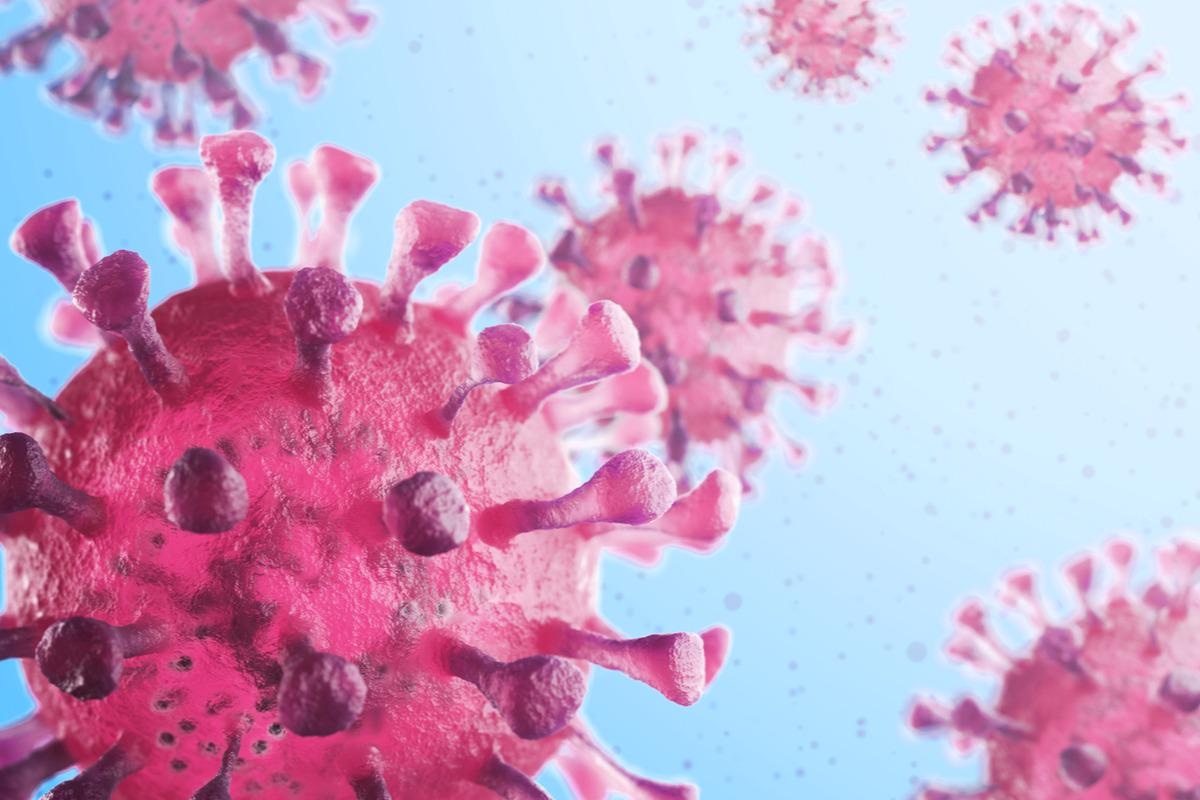Severe acute respiratory syndrome coronavirus 2 (SARS-CoV-2) has infected 270 million people worldwide and killed over 5.3 million people. Cancer patients, according to studies, are particularly vulnerable to SARS-CoV-2 infections. Aside from that, older age (≥60 years), a history of smoking, obesity, hypertension, cardiovascular disease, and diabetes are all characteristics that have been consistently related to a higher risk of severe COVID-19 disease and/or death in cancer patients.
 Study: Immune mechanisms in cancer patients that lead to poor outcomes of SARS-CoV-2 infection. Image Credit: creativeneko/Shutterstock
Study: Immune mechanisms in cancer patients that lead to poor outcomes of SARS-CoV-2 infection. Image Credit: creativeneko/Shutterstock
The severity of coronavirus disease 2019 (COVID-19) disease in cancer patients is determined in part by the tumor's etiology, type (hot vs. cold tumors, where hot tumors have an immunologically active microenvironment), stage, and anatomical location. Along with treatment regimens, these factors play an important role in diversifying the immune landscape of a malignancy. COVID-19 patients with hot tumors are more likely to develop severe COVID-19 disease, according to research.
Recent studies have shown that adverse outcomes in COVID-19-infected cancer patients can be caused by changes in the expression of host proteins that promote SARS-CoV-2 entry, an abnormal cytokine profile, lymph node thrombosis, impaired T/B-cell responses, and impaired inflammasome response – particularly the NLRP3 inflammasome.
A review published in Translational Research conducted by a team of Emory University researchers assesses the impact of "hot" vs. "cold" immune/tumor environments (and associated therapies) on susceptibility and disease course in subjects with these two types of tumors and infected with SARS-CoV-2 to decipher the mechanisms that drive these adverse outcomes in COVID-19 infected cancer patients. The processes outlined below can aid in the development of targeted therapies that boost anti-cancer responses while limiting the severity of COVID-19 disease.
The study
COVID-19 with 'pre-existing illnesses,' particularly cancer, has been proven in numerous studies to have greater mortality rates than the "healthy" population. The predicted 19 million new cancer cases (headed by breast, lung, colorectal, prostate, skin, and stomach cancers), ten million deaths, and increased infection risk in 2020 make understanding the immunological interplay between cancer and SARS-CoV-2 infection critical.
In addition, significant signaling pathways affected by SARS-CoV-2 infection are elevated in cancer patients with COVID-19, including cytokine signaling, type-I interferon signaling, androgen receptor signaling, as well as immunological checkpoint signaling. Untangling the complicated links between the immunological responses caused by various cancer types and SARS-CoV-2 infection has been a continuing problem for the field and will be examined more in the following sections.
To fully comprehend the influence of these various cancer etiologies on COVID-19 outcomes, it is necessary first to understand their impact on SARS-CoV-2 entry/infection and any existing or subsequent immune cascades. Angiotensin-converting enzyme 2 (ACE2) expression in lung epithelial cells was higher in older people, smokers, and/or people with smoking-related diseases, including chronic obstructive pulmonary disease (COPD).
Furthermore, expression of transmembrane serine protease 2 (TMPRSS2), a membrane-bound serine protease that works in tandem with ACE2 to increase SARS-CoV-2 entrance, is high in prostate cancer, where it is induced by androgen receptor (AR).
In two recent studies, patients with prostate cancer (cold cancer) who were not treated with androgen deprivation therapy (ADT) were more likely to contract SARS-CoV-2, suggesting a link between increased TMPRSS2 expression and the development of severe COVID-19 in patients with cold tumors like prostate cancer. Based on these findings, it's possible that elevated ACE2 and TMPRSS2 expression, primarily due to pro-inflammatory conditions, in patients with variables linked to lung cancer risk could lead to higher viral titers and the development of severe COVID-19.
There is very little information on SARS-CoV-2 specific innate immune responses in cancer patients. Patients with malignancies have a weakened innate immune response, making them more susceptible to SARS-CoV-2 infection. Because of the enhanced immunological compromised milieu of hot malignancies compared to cold tumors, higher frequencies of COVID-19 unfavorable outcomes caused by dysregulated innate immune responses are likely in patients with hot cancers than in patients with cold cancers.
Lung cancer (a hot cancer) has an active yet weakened and/or tired lung tumor microenvironment (TME), resulting in a weakened innate immune response to SARS-CoV-2 infection. TME in lung cancer, which is infiltrated with immune cells and chronically inflamed, has an immunological activation profile that can promote dysregulation of innate immune responses against SARS-CoV-2 in the lungs.
Furthermore, tumor cells may experience cytokine storms due to numerous underlying causes, which could affect the innate immune responses generated against SARS-CoV-2 infection and the severity of COVID-19. Dysregulation of the innate immune response as a result of SARS-CoV-2 infection, on the other hand, can promote the growth of lung cancer and/or other cancers.
Summary
The current COVID-19 pandemic impacts people who have a pre-existing immunocompromised profile (e.g., cancer patients). Because cancer populations are so diverse (in terms of tumor kind and treatment), inconsistent reports of negative outcomes from SARS-CoV-2 infection have been recorded. The development of treatments that can prevent negative outcomes and promote healthy recovery will be aided by a mechanical knowledge of how infections progress in homogeneous cancer populations.
-
Latif, M. et al. (2021) "Immune mechanisms in cancer patients that lead to poor outcomes of SARS-CoV-2 infection", Translational Research. doi: 10.1016/j.trsl.2021.12.001. https://www.translationalres.com/article/S1931-5244(21)00284-X/fulltext#%20
Posted in: Medical Science News | Medical Research News | Disease/Infection News
Tags: ACE2, Androgen, Androgen Deprivation Therapy, Angiotensin, Angiotensin-Converting Enzyme 2, Cancer, Cardiovascular Disease, Cell, Chronic, Chronic Obstructive Pulmonary Disease, Cold, Colorectal, Coronavirus, Coronavirus Disease COVID-19, Cytokine, Diabetes, Enzyme, Immune Response, Inflammasome, Interferon, Lung Cancer, Lungs, Lymph Node, Membrane, Mortality, Obesity, Pandemic, Prostate, Prostate Cancer, Receptor, Research, Respiratory, SARS, SARS-CoV-2, Serine, Severe Acute Respiratory, Severe Acute Respiratory Syndrome, Skin, Smoking, Stomach, Syndrome, Thrombosis, Tumor
.jpg)
Written by
Colin Lightfoot
Colin graduated from the University of Chester with a B.Sc. in Biomedical Science in 2020. Since completing his undergraduate degree, he worked for NHS England as an Associate Practitioner, responsible for testing inpatients for COVID-19 on admission.
Source: Read Full Article
